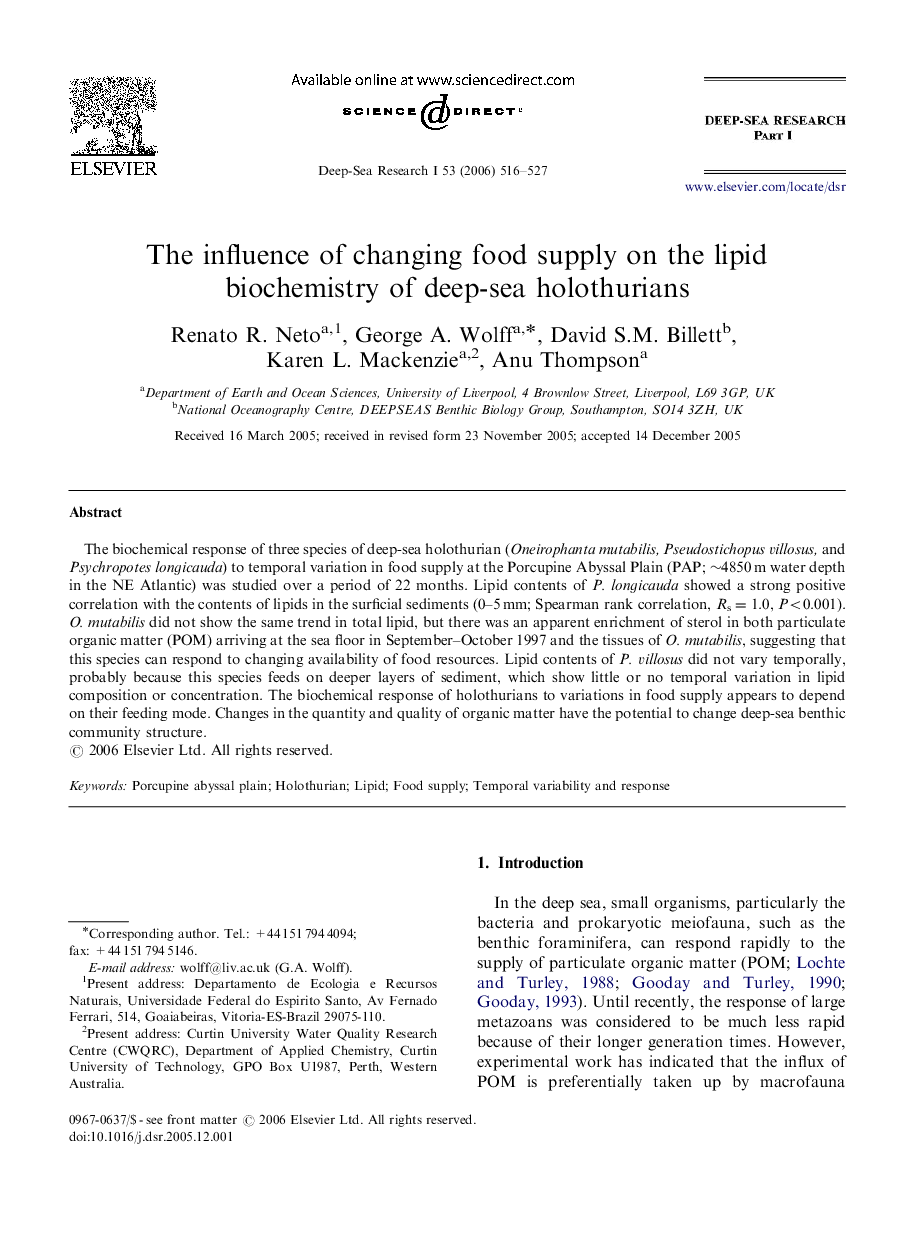| Article ID | Journal | Published Year | Pages | File Type |
|---|---|---|---|---|
| 4535709 | Deep Sea Research Part I: Oceanographic Research Papers | 2006 | 12 Pages |
The biochemical response of three species of deep-sea holothurian (Oneirophanta mutabilis, Pseudostichopus villosus, and Psychropotes longicauda) to temporal variation in food supply at the Porcupine Abyssal Plain (PAP; ∼4850 m water depth in the NE Atlantic) was studied over a period of 22 months. Lipid contents of P. longicauda showed a strong positive correlation with the contents of lipids in the surficial sediments (0–5 mm; Spearman rank correlation, Rs=1.0, P<0.001). O. mutabilis did not show the same trend in total lipid, but there was an apparent enrichment of sterol in both particulate organic matter (POM) arriving at the sea floor in September–October 1997 and the tissues of O. mutabilis, suggesting that this species can respond to changing availability of food resources. Lipid contents of P. villosus did not vary temporally, probably because this species feeds on deeper layers of sediment, which show little or no temporal variation in lipid composition or concentration. The biochemical response of holothurians to variations in food supply appears to depend on their feeding mode. Changes in the quantity and quality of organic matter have the potential to change deep-sea benthic community structure.
